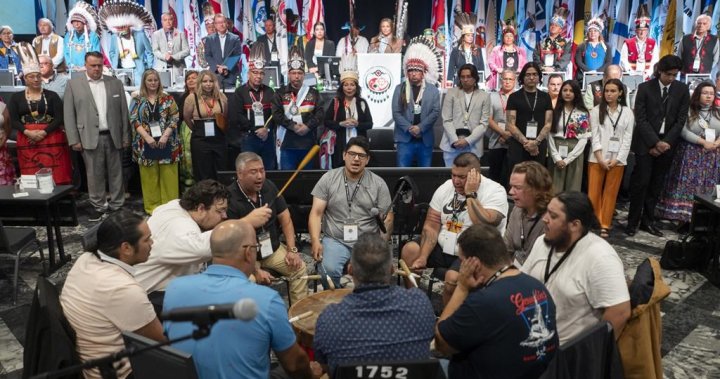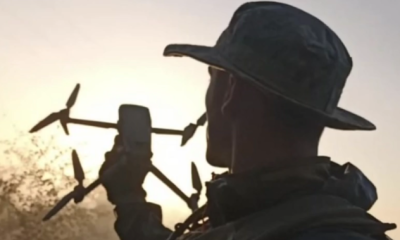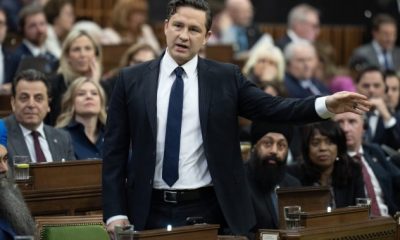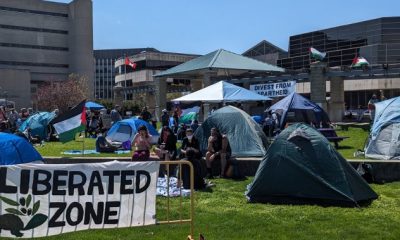General News
Assembly of First Nations to elect new national chief in special assembly

It’s election day for the Assembly of First Nations, where chiefs in the assembly or their proxies will decide who’s best suited to lead the organization after several turbulent years.
The election comes months after former national chief RoseAnne Archibald was ousted over the findings of an investigation into complaints from five staff members about her conduct.
The third-party independent review concluded some of Archibald’s behaviour amounted to harassment, and that she had breached confidentiality rules and violated internal policies by retaliating against complainants.
Archibald denied the allegations. Her supporters maintain she was removed from the post for trying to change the organization’s status quo.
Of the 231 chiefs who took part in the special assembly, 71 per cent voted to remove her.
Six candidates put their names forward to replace Archibald and interim national chief Joanna Bernard, including Reginald Bellerose, Craig Makinaw, Sheila North, David Pratt, Dean Sayers and Cindy Woodhouse.
The candidates made their final plea to the assembly Tuesday in an all-candidates forum where they outlined why they were best suited to lead the organization, which represents some 600 chiefs across the country.
Pratt, the current vice-chief for the Federation of Sovereign Indigenous Nations, reminded delegates of the “great history” they share in their advocacy, and said if he’s national chief, “we’re going to shake this country up.”
“We’ve got to stand together and send a message to governments across the country that enough is enough,” Pratt said.
Sayers, a longtime Batchewana First Nation chief, said if he wins the election, he won’t be sitting in Ottawa waiting for meetings with the prime minister.
Instead, he promised to be on the ground in communities listening to the chiefs themselves and taking actions based on their directives.
North, a veteran of past AFN leadership campaigns, said she has learned a lot since she last sought the leadership post five years ago.
She recommended a treaty among First Nations from across the country to show the federal government they are united, and that they would refuse to support legislation designed by others that doesn’t work for their communities.
Woodhouse, the assembly’s current regional chief for Manitoba, earned a rousing cheer when she acknowledged Wab Kinew’s election win in her province, becoming Canada’s first First Nations provincial premier.
She also called for better First Nations policing, more communication between chiefs and the executive, and the need to lobby Ottawa more aggressively to ensure their concerns are addressed in the next federal budget.
Bellerose, chair of the Saskatchewan Indian Gaming Authority and the Saskatchewan Indian Training Assessment Group, said he’s running for the top job because of “unfinished business” — the fight for inherent rights and the recognition of treaties.
Bellerose said the work being done within the assembly is “life and death,” and pleaded for chiefs to come back to the assembly.
According to the assembly’s election procedures, each member nation has one vote, which can be cast either by the chief or by a registered proxy on Wednesday. The winner must receive more than 60 per cent of the vote.
Polls close at 3 p.m. ET, with an announcement about the results from the first ballot expected about 30 minutes later.
If no candidate receives more than 60 per cent of the vote, the candidate with the lowest number of votes is eliminated and additional rounds of voting ensue.
Shortly after the final results are announced, the newly elected national chief is expected to take part in an oath of office ceremony.
© 2023 The Canadian Press
Source
Disclaimer: No copyright infringement intended. All rights and credits reserved to respective owner(s).























